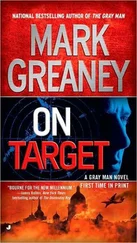The director of the mining concern explained all this calmly and carefully to Choi Ji-hoon, and this candor benefitted him greatly.
He was only thrown into a labor camp. He wasn’t executed.
There was one more piece of fallout from the Chinese rare earth mine negotiations. Choi had decided that his uncle, North Korea’s ambassador to China, had not been an honest broker in the affair. He held him personally responsible for the breakdown in negotiations with the Chinese, although it was Ji-hoon’s own uncompromising demands that had doomed the negotiations.
His uncle, his father’s brother, a man who could have ruled the DPRK had the cards been dealt differently, was relieved of his position and thrown into the internment camp at Chongjin in the northeast of the nation.
7
Present day
President of the United States Jack Ryan stepped out of the Oval Office while slipping on his suit coat. He passed through his secretary’s office and entered the adjacent cabinet room as he fixed his lapel and straightened his tie. In front of him he found a dozen men and women already waiting for his three p.m. meeting, and they stood as he appeared, but he waved them back to their seats quickly as he sat down at the head of the table and reached for a cup of coffee already positioned there for him.
His wife, Cathy, wasn’t crazy about his afternoon cup, but his blood pressure had been so good during his last checkup he’d successfully negotiated five ounces of black Jamaican light roast five days a week.
And Ryan was especially proud of this diplomatic coup.
He looked around to confirm the attendance of the usual suspects for most meetings involving national security: Secretary of State Scott Adler, CIA director Jay Canfield, Director of National Intelligence Mary Pat Foley, National Security Adviser Joleen Robillio, and Secretary of Defense Bob Burgess all sat near Ryan at the northern end of the table and, farther away, more men and women of the military, intelligence community, and Department of State sat with papers and tablet computers in front of them.
Also in attendance was Arnie Van Damm, Ryan’s chief of staff. Arnie wasn’t a national security official, but he, more than anyone else, had the President’s ear, and he had the President’s stopwatch. He had a lot of control over who got face time with Jack Ryan, and for this reason Ryan wanted him in important meetings of national security so Arnie could have an understanding of the stakes and give those involved in any crisis the access they needed to the Chief Executive. Ryan had heard of other Presidents being slaves to the agendas written up by lesser chiefs of staff, with the Girl Scout who sold the most cookies for the year getting more attention than an undersecretary of defense on a day when a world crisis loomed.
Ryan did his share of low-priority meet-and-greets, but he had no problem shooing away the Girl Scouts when he needed to give his attention to an impending catastrophe.
This meeting had been on the schedule for a few days; originally the topic had been a series of aggressive troop movements in Russian-held Eastern Ukraine, but Ryan had been given the heads-up this morning that the troubles in Central Europe would have to take a backseat today in favor of an even more pressing crisis. Ryan caught himself wishing the problems he faced on the world stage would all line up and approach in single file, but he’d been involved in government work for decades, and he knew emergencies preferred attacking simultaneously along a wide and coordinated front.
Ryan had learned through experience that good leadership meant staying versatile, flexible, and ready to put out fires as they flared, and the last-minute changeup that had been called for in today’s meeting was just one more example.
He’d also learned to do his homework; he wasn’t walking into this meeting unprepared. He’d spent most of the last hour reading through National Intelligence Estimates and briefing books and even some raw intel on the crisis du jour.
Intelligence intercepts had determined days ago that North Korea was fueling a long-range rocket, a version of its most advanced ICBM, and moving it to its launch pad. They were clearly prepping to launch, likely for a test because their earlier launches of the device had all been unsuccessful. This new test had, quite understandably, caused concern at the White House, and Ryan had been boning up on the North Koreans’ technology before the meeting.
As soon as Ryan sat down he said, “I got word the agenda for today’s meeting has been changed, so I guess that means the DPRK launched.”
SecDef Bob Burgess nodded. “Yes, sir.”
Ryan sighed. “Give me the details.”
“Colonel Richard Ward from DIA will brief us, Mr. President.”
A tall, thin Army colonel in his forties stood up at the far end of the table. In his hand he held a laser pointer and in front of him was a folio with the seal of his organization, the Defense Intelligence Agency. Sitting next to Ward, a female DIA major controlled with her tablet computer the map and graphics on a large plasma screen on the far wall. The screen showed the entire Korean Peninsula at first, but quickly it zoomed in on the DPRK.
Ward said, “Good afternoon, Mr. President. At twenty-two hundred hours yesterday North Korean time, some six hours ago here in Washington, the DPRK launched an Unha-3, or Galaxy-3 rocket from their Dongchang-dong Launch Station in the northwestern part of the country. This facility is also known as Sohae Satellite Launching Station.”
The screen next showed the hundred-foot-long rocket. “As you are aware, sir, the DPRK claims the Unha-3 is a space launch vehicle, and while this is technically accurate, it is merely an expendable carrier rocket and therefore virtually identical to the DPRK’s most advanced but as yet unproven ICBM, the Taepodong-2.”
Ryan did know all of this. The colonel seemed a little eager and earnest, not intentionally patronizing his President but perhaps unaware of the fact Ryan made a point to know as much of this material as possible as part of his job.
Ryan waved a hand. “Right. Any sat launch over there is just cover to test an ICBM. The Unha-3 is more than big enough to carry a nuke, and the range estimates say it could deliver a payload as far as Northern California.”
“That’s correct, Mr. President. If the North Koreans have successfully managed to miniaturize a nuclear device. We haven’t been able to confirm they have perfected the technology yet, but we suspect they have. The Unha-3 carries a hundred-kilo payload, and you can pack a lot of power into a hundred-kilo device if you have mastered the technology to miniaturize it.”
“Or if you have stolen the technology,” Ryan said.
The colonel nodded, though he looked a bit off balance by the comment, because it wasn’t part of his briefing.
“Please continue, Colonel Ward,” the President said.
The screen now showed a graphic representation of the launch, and the separation of the first stage of the rocket/missile. “We had a number of sensors in place to track the launch. Measurement and signature intelligence assets. From this we have put together what happened after the rocket cleared the launch pad. The first stage burned for approximately two minutes, burnout took place at one hundred twenty kilometers altitude over the east coastline of North Korea above the city of Tanchon, and there was good separation. The second-stage burnout occurred at three hundred fifty kilometers over the Sea of Japan. The rocket then apparently malfunctioned before third-stage separation, there was a catastrophic failure, and it crashed into the Sea of Japan, eighty miles west of Sapporo.”
Читать дальше












